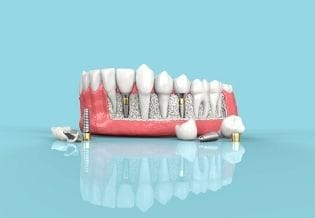Submit Manuscript
A clear, efficient submission path for dentistry and oral implant research.
Submit Your Work to JDOI
Follow these guidelines to submit research that improves implant outcomes, restorative success, and oral health care.
Journal at a Glance
- ISSN: 2473-1005
- DOI Prefix: 10.14302/issn.2473-1005
- License: CC BY 4.0
- Peer Review: Single-blind
- First Decision: 2-4 weeks from submission
- Publication: After APC confirmation and production
JDOI offers a structured submission process designed for clinical and translational dental research. Submissions are evaluated for scope fit, methodological rigor, and relevance to implant or oral health outcomes.
Use ManuscriptZone to submit and track your manuscript. A complete submission package helps reduce delays and improves review efficiency.
- Confirm the manuscript aligns with dentistry or oral implant outcomes
- Prepare ethics approvals and informed consent documentation
- Include data availability statements and registry identifiers
- Review reporting standards appropriate to the study design
- Ensure figures, tables, and supplementary files are complete
| Category | Typical Focus | Notes |
|---|---|---|
| Original Research | Clinical or translational studies | Clear outcome reporting required |
| Systematic Review | Evidence synthesis and meta analysis | PRISMA reporting recommended |
| Clinical Study | Implant outcomes or technique evaluation | Include follow up data |
| Case Report | Novel clinical insight | Clear ethics and consent required |
- Title page with author affiliations and corresponding author contact
- Structured abstract with objectives, methods, results, and conclusions
- Introduction framing the clinical or scientific problem
- Methods detailing study design, population, and analysis
- Results with clear tables, figures, and outcome measures
- Discussion with clinical implications and limitations
- Data availability, ethics, and funding statements
- References in Vancouver style
- Use clear section headings and consistent numbering
- Ensure tables are editable and not embedded images
- Name files clearly (e.g., MainManuscript, Figure1, Table2)
- Provide figure files separately in high resolution format
- Confirm all abbreviations are defined on first use
- Check that units and symbols follow SI conventions
- Full manuscript title and short running title
- Author names, affiliations, and ORCID identifiers
- Corresponding author contact information
- Word count and keyword list
- Funding and conflict disclosures
List authors who made substantive contributions to the work and confirm that all authors approve the final submission. Contribution statements improve transparency and protect the integrity of the record.
Any changes to the author list after submission must be approved by all authors and reviewed by the editorial office.
- Describe each author contribution clearly
- Identify the guarantor responsible for data integrity
- Disclose medical writers or editorial assistance
- Confirm that all authors meet authorship criteria
Structured abstracts should summarize objectives, methods, results, and conclusions. Keywords should reflect dental or implantology terminology to improve discoverability.
Select three to six keywords aligned with clinical practice and implant outcomes.
- Provide high resolution images and clear labels
- Include descriptive legends and units of measurement
- Ensure figures and tables are cited in the text
- Submit supplementary materials with concise descriptions
- De identify patient images and confirm consent
All human research must include ethics approval and informed consent. Clinical trials should include registration identifiers and report adverse events when relevant.
Animal studies must comply with institutional and national welfare standards.
- IRB or ethics committee approval details
- Consent procedures for human participants
- Trial registration numbers when applicable
- Conflict of interest disclosures
- CONSORT for randomized trials
- STROBE for observational studies
- PRISMA for systematic reviews
- CARE for case reports
Clinical trials should include a registration identifier and describe protocol adherence. Protocol transparency supports ethical review and improves confidence in reported outcomes.
If a protocol was amended after registration, explain the changes and timing in the methods section.
- Provide registration numbers and registry names
- Describe primary and secondary outcomes clearly
- Note protocol deviations and justification if applicable
- Describe sample size calculations and power where relevant
- Report confidence intervals alongside p values
- Explain handling of missing data and outliers
- Specify statistical software and version
- Provide repository links or access pathways for datasets
- Include analytic code when feasible
- Describe any restrictions on data reuse
- Link protocols or trial registrations when available
Preprints are allowed when disclosed in the cover letter and cited in the manuscript. Prior conference presentations should also be noted.
This transparency supports ethical publishing and prevents duplicate reporting.
- Explain scope fit and clinical relevance
- Summarize the manuscript contribution and novelty
- List suggested reviewers with affiliations and emails
- Disclose related submissions or preprints
- Confirm funding and conflicts of interest
Manuscripts are submitted through ManuscriptZone. Create an account, complete the submission form, and upload all files and supporting documents.
If you experience technical issues, contact the editorial office for assistance.
- Register or log in at https://oap.manuscriptzone.net
- Enter manuscript title, abstract, and keywords
- Upload manuscript, figures, tables, and supplementary files
- Complete author, funding, and ethics declarations
- Submit and track progress in your dashboard
- Initial editorial screening for scope and completeness
- Reviewer assignment based on topic and methods
- Single blind peer review with consolidated decision letter
- Revision requests with clear guidance
- Final decision by the editorial team
Address reviewer comments point by point and highlight changes in the revised manuscript. Clear responses help accelerate decisions and improve review efficiency.
If you disagree with a suggestion, provide a concise rationale supported by evidence.
- Response letter with point by point replies
- Revised manuscript with changes highlighted
- Updated figures or tables if requested
- Revised data availability or ethics statements when needed
- Confirmation that all authors approved the revision
Accepted manuscripts move to production for copyediting, formatting, and proof review. Authors review proofs to ensure accuracy in data, figures, and metadata.
Publication proceeds after APC confirmation and production steps are complete. Payment within 48 hours of invoice avoids delays.
- Verify author names, affiliations, and funding statements
- Check tables, figures, and captions for accuracy
- Confirm that references and DOI links are complete
- Ensure supplementary files are final and referenced
Accurate metadata improves discoverability. Confirm author details, keywords, and funding statements during proof review so indexing services can capture your article correctly.
Reliable metadata also supports funder reporting and institutional dashboards.
APCs are applied only after acceptance. The editorial office can provide invoices and documentation for institutions or funders.
For APC questions, contact [email protected].
Clear writing improves review efficiency and reader comprehension. If you need language editing support, contact the editorial office before submission.
Consistent formatting and complete declarations help avoid delays.
- Scope fit and dental relevance confirmed
- Ethics approval and consent included
- Data availability statement completed
- Abstract and keywords aligned with implant outcomes
- Figures and tables labeled and cited
- Cover letter prepared
- Funding and conflict disclosures complete
JDOI supports authors, editors, and reviewers with timely guidance on scope, policies, and workflows. If you need clarification on requirements, data statements, or review timelines, contact the editorial office at [email protected]. We can provide templates, examples, and best-practice recommendations to help you move forward confidently. Our responses typically include next steps, resource links, and a clear point of contact. Early communication helps avoid delays, ensures consistent compliance, and improves the overall publication experience. For database verification, APC documentation, or ManuscriptZone access issues, please email the editorial office with your manuscript title and contact details.
Start Your Submission
Submit through ManuscriptZone or contact the editorial office for support.


